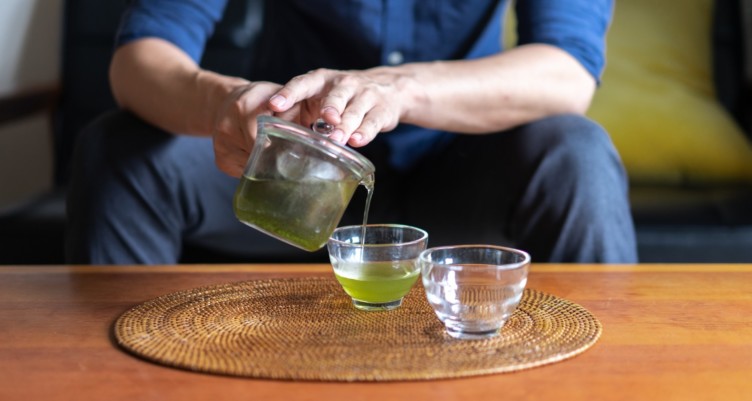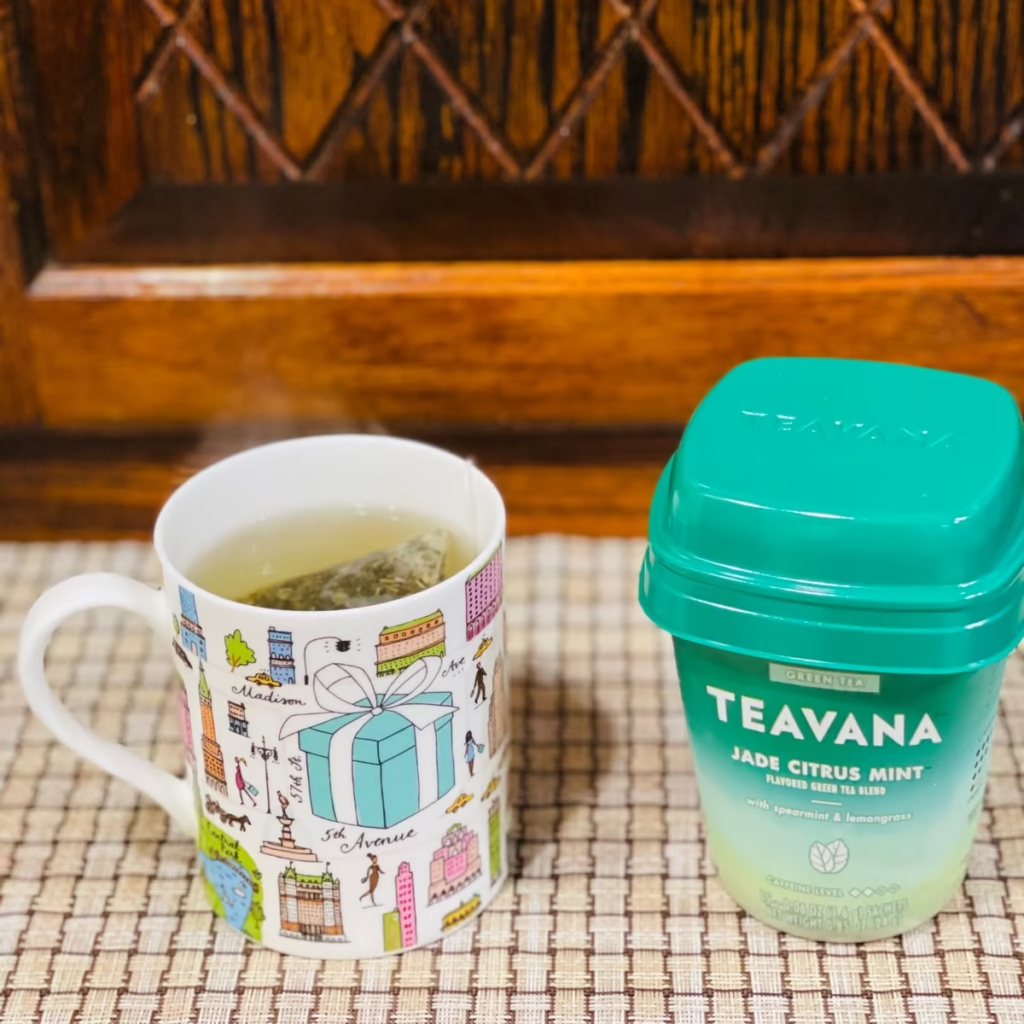Green tea has long been celebrated for its numerous health benefits, and recent studies suggest that it may play a significant role in supporting prostate health. Rich in antioxidants and polyphenols, particularly epigallocatechin gallate (EGCG), green tea has been linked to reduced inflammation and a lower risk of prostate-related issues, including prostate cancer. With so many varieties available, choosing the best green tea for prostate health can be a bit overwhelming.
In this blog, we’ll explore why green tea is beneficial for prostate health, how to select the best options, and the ideal way to incorporate it into your daily routine for maximum benefits.
Why Green Tea is Good for Prostate Health
Green tea has long been celebrated for its numerous health benefits, and prostate health is one of the areas where it shows promising potential. This is largely due to its rich content of antioxidants, particularly catechins like epigallocatechin gallate (EGCG). These powerful antioxidants help combat oxidative stress, a condition linked to the aging process and various chronic diseases, including prostate issues. Oxidative stress can lead to the breakdown of cells, causing inflammation and increasing the risk of prostate diseases, including cancer. By reducing oxidative damage, it may help protect prostate cells from harm.

Several studies have suggested that the bioactive compounds in green tea, especially EGCG, may inhibit the growth of prostate cancer cells by interfering with their ability to proliferate and spread. Additionally, green tea has been shown to have a positive impact on hormone regulation, particularly by lowering levels of testosterone and dihydrotestosterone (DHT), two hormones that play a significant role in prostate growth and the development of conditions like benign prostatic hyperplasia (BPH) and prostate cancer.
Recommended: Best Dark Chocolate For Prostate Health
Furthermore, regular consumption of green tea has been linked to improved urinary function, which is an important aspect of prostate health. It may help ease symptoms associated with prostate enlargement, such as frequent urination or difficulty urinating. These benefits are particularly relevant to older men who are more prone to developing prostate issues.
How Much Green Tea Should You Drink for Prostate Health?
To support prostate health, drinking 2-3 cups of green tea per day is generally recommended. This amount provides a sufficient concentration of beneficial antioxidants, particularly catechins like epigallocatechin gallate (EGCG), which are known to help reduce oxidative stress and potentially lower the risk of prostate issues, including prostate cancer and benign prostatic hyperplasia (BPH).
Studies suggest that consuming green tea regularly may help inhibit the growth of prostate cancer cells, improve urinary function, and regulate hormones like testosterone and dihydrotestosterone (DHT), which can contribute to prostate problems. However, the specific amount needed may vary depending on individual health factors, and it’s important to note that the effects of green tea on prostate health are still being researched.
For those who find it difficult to consume multiple cups a day, green tea supplements are also an option, but it’s crucial to consult with a healthcare professional before starting any supplement regimen, as they may interact with other medications or conditions. Additionally, green tea should be part of an overall healthy lifestyle that includes a balanced diet, regular physical activity, and routine medical check-ups to best support prostate health.
Recommended: How Much Dark Chocolate Should I Eat For Prostate Health?
Top Green Tea Brands for Prostate Health
When selecting a green tea for prostate health, it’s important to focus on high-quality brands that offer teas rich in antioxidants, particularly catechins like EGCG, which are believed to benefit prostate health. Here are some top green tea brands that are known for their quality and health benefits:
Tazo Organic Green Tea
Tazo’s Organic Green Tea is made from high-quality leaves, providing a smooth taste and a good amount of antioxidants that help protect against oxidative stress, supporting prostate health.
Harney & Sons Green Tea
Known for premium quality, Harney & Sons offers antioxidant-rich green tea that may help reduce inflammation and promote prostate health, sourced from reputable regions.
Kirkland Signature Green Tea
A cost-effective, widely available option, Kirkland Signature provides high-quality green tea leaves that deliver antioxidants to support prostate health.
Teavana Green Tea
Teavana’s premium loose leaf teas retain the maximum health benefits, including antioxidants like EGCG that support overall prostate health and reduce inflammation.

Bigelow Green Tea
Bigelow’s green tea is affordable and provides a clean, refreshing taste with antioxidants that help reduce oxidative stress and inflammation, which can benefit prostate health.
Pukka Organic Green Tea
Pukka’s organic green tea blends contain antioxidants that help reduce inflammation, improve prostate function, and provide overall health benefits due to their high-quality, organic sourcing.
Traditional Medicinals Organic Green Tea
Known for its organic herbs, Traditional Medicinals’ green tea is caffeine-free and offers antioxidants that reduce inflammation and oxidative stress, which are crucial for prostate health.
Rishi Tea Organic Green Tea
Rishi’s high-quality organic green tea is rich in antioxidants and polyphenols, which help reduce oxidative stress and inflammation, supporting prostate wellness.
Løv Organic Green Tea
Løv Organic’s green tea offers a high-quality, antioxidant-rich option that can help promote prostate health by reducing oxidative stress and inflammation.
These green teas offer a variety of benefits, mainly centered on their antioxidant content, which supports prostate health by fighting oxidative stress and inflammation.
Tips on How to Choose the Best Green Tea for Prostate Health
- Select green teas high in antioxidants, particularly catechins like EGCG, known for their role in reducing inflammation and protecting prostate health.
- Opt for organic green teas to avoid harmful pesticides and chemicals. Certified organic options ensure a cleaner, healthier product.
- Look for trusted brands that provide transparency about sourcing and quality. Teas from regions like Japan and China are often known for superior quality.
- Consider matcha powder for a concentrated dose of antioxidants, or loose-leaf teas, which often retain more nutrients than tea bags.
- Choose pure green tea without added sugars, artificial flavors, or unnecessary ingredients. Blends with natural, complementary flavors are acceptable.
- If you’re sensitive to caffeine, consider decaffeinated green teas or limit consumption later in the day to avoid disruptions to sleep.
- Select a tea that matches your taste preferences, whether you enjoy mild, grassy flavors or smoother, nutty notes. This makes regular consumption more enjoyable.
- Ensure the tea is properly sealed in airtight containers to preserve its freshness and nutrients. Labels should indicate the harvest and expiration dates.
- Choose brands that undergo third-party testing to confirm antioxidant levels, purity, and freedom from contaminants like heavy metals.
- Explore reviews and seek guidance from healthcare providers or experienced tea drinkers to identify reputable options for prostate health.
Recommended: Can I Use Hydrogen Peroxide For Prostate Health?
Potential Side Effect of Over consumption of Green Tea
Green tea is widely recognized for its health benefits, including its role in supporting prostate health. However, excessive consumption or improper use can lead to certain side effects that are important to consider. Some of these side effects may include:
Caffeine Sensitivity
Green tea contains caffeine, which may cause side effects such as restlessness, insomnia, rapid heartbeat, or anxiety in those sensitive to stimulants. Decaffeinated green tea can be a better alternative for individuals with low caffeine tolerance.
Digestive Discomfort
Drinking green tea on an empty stomach can irritate the stomach lining due to its tannin content, leading to symptoms like nausea or acid reflux. Consuming it with food can help reduce these effects.

Reduced Iron Absorption
The tannins in green tea can inhibit the body’s ability to absorb iron from plant-based foods, potentially increasing the risk of anemia over time for individuals with low iron levels.
Liver Toxicity Risk
Excessive intake of green tea, especially in supplement form or in high doses, has been associated with rare cases of liver damage. This is more common with concentrated extracts than with brewed tea.
Drug Interactions
Green tea may interact with medications, including blood thinners like warfarin, due to its vitamin K content. It may also reduce the effectiveness of certain antibiotics or beta-blockers.
Allergic Reactions
Though uncommon, some people may experience allergies to green tea, presenting as skin irritation, rashes, or breathing difficulties.
Headaches and Dizziness
High consumption of green tea can lead to headaches or dizziness due to its caffeine content and mild diuretic properties.
Impact on Bone Health
Consuming excessive green tea may interfere with calcium absorption, potentially affecting bone strength if intake is not balanced.
Conclusion
Green tea is renowned for its numerous health benefits, including its potential to promote prostate health due to its rich antioxidants and anti-inflammatory properties. However, like any natural supplement, it should be consumed with care and in moderation to prevent side effects such as digestive issues, caffeine sensitivity, or interactions with medications.
Opting for high-quality green tea, staying within recommended daily limits, and seeking guidance from healthcare professionals when necessary can help maximize its benefits while reducing risks. While green tea can be a valuable addition to a healthy lifestyle, it should be viewed as a complement to, not a substitute for, professional medical advice and treatments. Prioritizing safety and informed choices is key to achieving optimal health and well-being.
